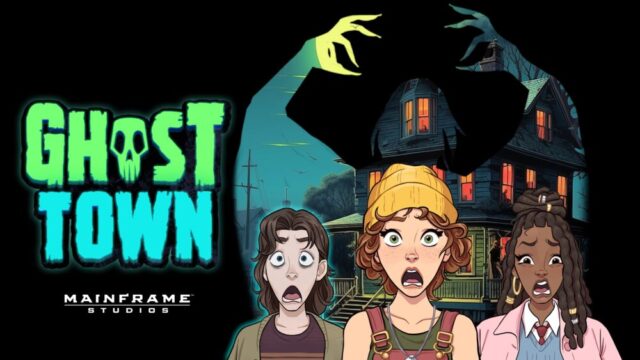Review: American Dad “Stan & Francine & Stan & Francine & Radika”
Overview:
Stan and Francine find themselves unable to move on from an argument that they had over two decades ago and their contrasting memories of the event only cause greater stress between the two of them. Rather than work through their issues like functional adults, Stan decides that time traveling back to the ‘90s to witness their original argument first-hand is the best way to put this matter to bed. Stan and Francine receive closure, so to speak, but their collective perspectives on their past selves and how much they’ve changed only ignites a much more serious rift between them. Suddenly this simple fight from the 1990s turns into the catalyst for whether Stan and Francine can–and should–have a happy future together.
Back in the present, Klaus throws a dinner party, but he has serious concerns over who from his guest list will actually grace him with their presence. Have you RSVP’d?
Our Take:
American Dad is full of headstrong characters, but it’s Stan and Francine that can often represent the most stubborn members of the Smith family. Stan and Francine have both been tackled a bunch this season, albeit separately and usually with one of their children as their foil. However, the stories that really dig into the nuances of the fragile balance that is Stan and Francine’s relationship can sometimes result in some of the most revealing and compelling episodes of American Dad. At this point, Stan and Francine know everything about each other–even the stuff that they think that they don’t know–and their relationship has been dissected from every possible angle. The highs and lows of Francine and Stan as a couple are nothing new, but what is unique to “Stan & Francine & Stan & Francine & Radika” is how it filters their love through a complex sci-fi premise that runs the risk of leaving them both in a radically different, fractured state.
American Dad is no stranger to science fiction and Stan’s employment at the CIA is typically the source of this high tech hardware. One of the strongest examples of this–as well as an episode that’s a standout American Dad in general–is “May the Best Stan Win,” which pits Stan against a robot doppleganger for Francine’s affection. “Stan & Francine & Stan & Francine & Radika” manages to wrestle with an even more complicated premise when it uses irresponsible time travel as the device to analyze Stan and Francine’s compatibility.
Time travel is inherently tricky territory to fit into 22 minutes of television, but “Stan & Francine & Stan & Francine & Radika” rises to the occasion. It attempts to do something new with this premise and creates genuine stakes in the process. It manages to not contradict its topsy turvy storyline and even tie up its loose ends in a satisfying manner. The ending is definitely rushed, but it still works and it’s definitely not an egregious issue in an episode that accomplishes so much and covers such substantial ground. It’s interesting to note that American Dad’s 300th episode heavily revolves around time travel and it’s careful and conscious to not push its premise too far. “Stan & Francine & Stan & Francine & Radika” feels even more exaggerated and takes bigger risks in this department, but it still doesn’t break its rules and makes sure that everything works.
American Dad frequently highlights how Stan and Francine’s egos can often get in the way of themselves, yet “Stan & Francine & Stan & Francine & Radika” provides a clever variation on the trope where Stan and Francine are their own worst enemies. They both wind up with the time-displaced versions of themselves, which makes it difficult for them to resent their opposition here since it’s still them on some level. It’s the perfect type of paradox minutiae that time travel storytelling should explore and it feels reminiscent of the cyclical nature of one of Futurama’s very best episodes, “Roswell That Ends Well.”
It’s not the episode’s focus, but the brief scenes where Hayley and Jeff throw a dinner party in their RV are really sweet, feel natural, and function as a nice extension to what they’ve gone through during this season. All of these feuding gatherings also trigger a C-story with Roger where he struggles to find himself and learn who “Roger” really is once he’s stripped away all of his heightened personas. Roger’s malaise is used to compliment Klaus and Steve’s stress, but it’s a strong enough idea that it easily could have been the episode’s full B-story and received more attention. It’s fun in small doses, but there’s even more depth to this mini crisis that Roger experiences.
“Stan & Francine & Stan & Francine & Radika” is American Dad at its weirdest and most ambitious, but it absolutely works for the personal story that this episode tells. It’s another successful episode that digs deep into character, but with a wild premise that isn’t afraid to take risks. “Stan & Francine & Stan & Francine & Radika” gets right on the brink of pushing the madness too far, but it still holds this emotional story together with a conclusion that respects both the characters as well as the rules that it establishes for this outlandish story.


























Hi Ashley, thank you so much for reading and we love the feedback. Note that on that day we had 14th posts go up and only ten posts show on the front page, so it's possible the preview had already been archived by the time you got to it. One recommendation would be to add our RSS feed to your favorite news aggregator service like Feedly, this way you get all of the latest posts!